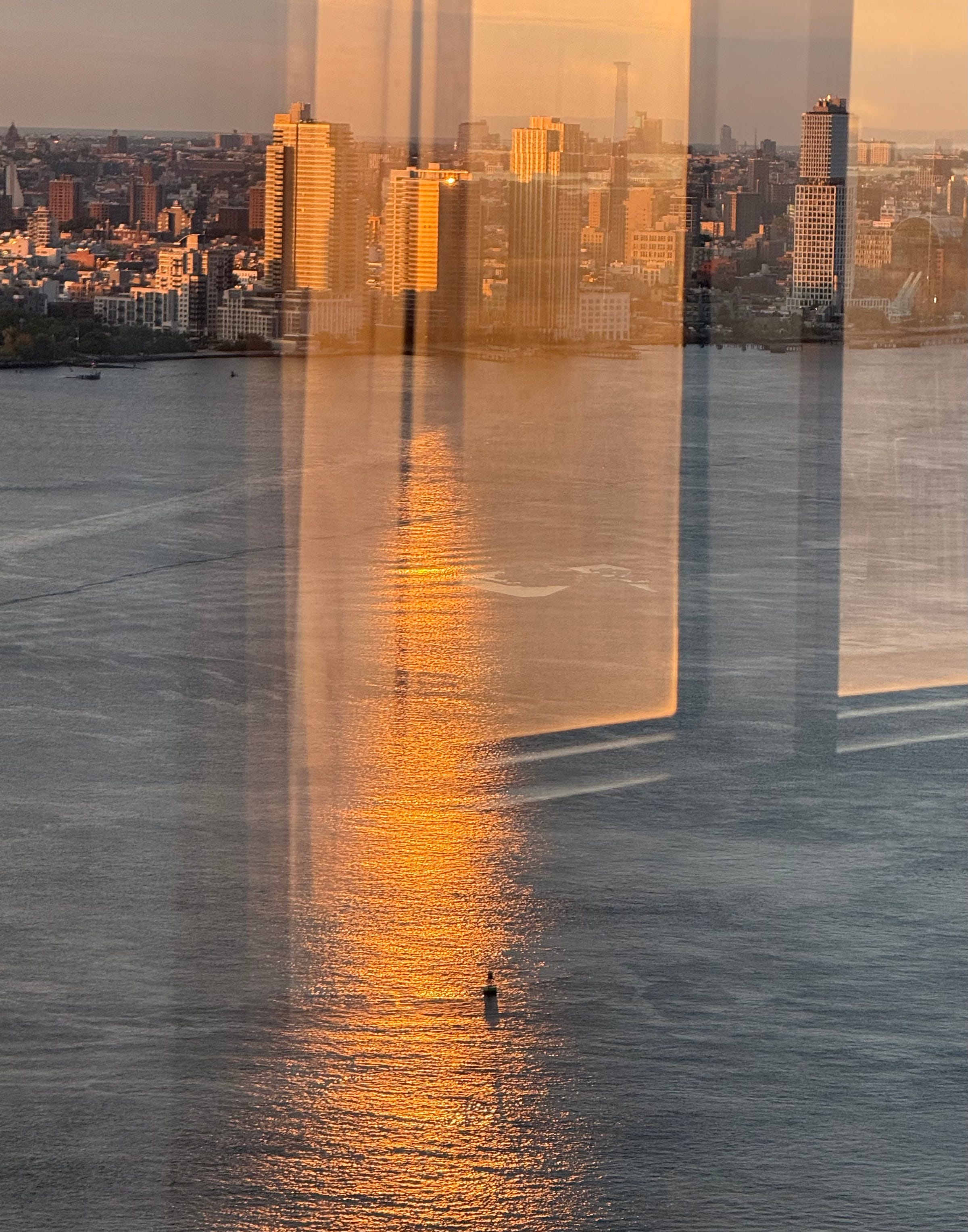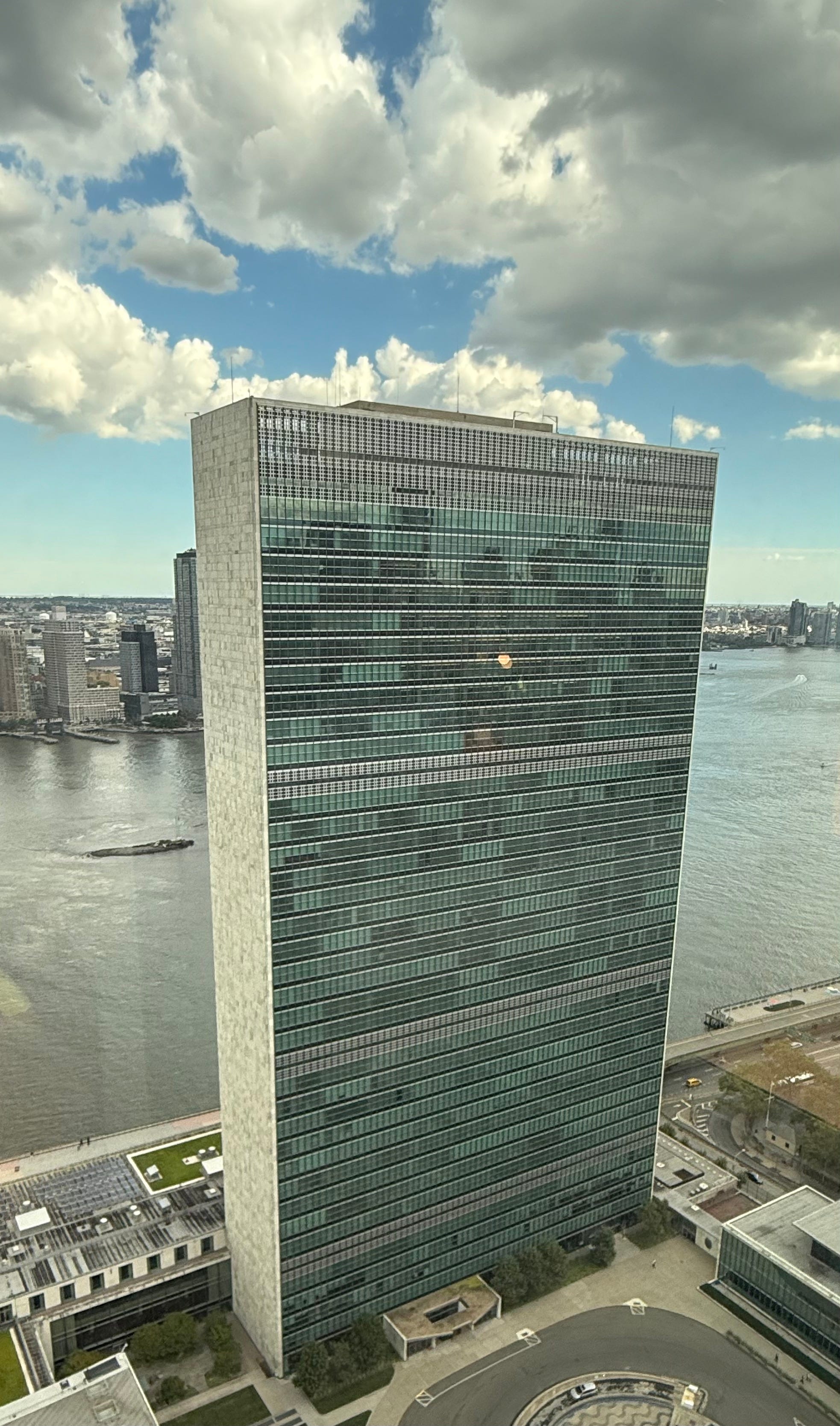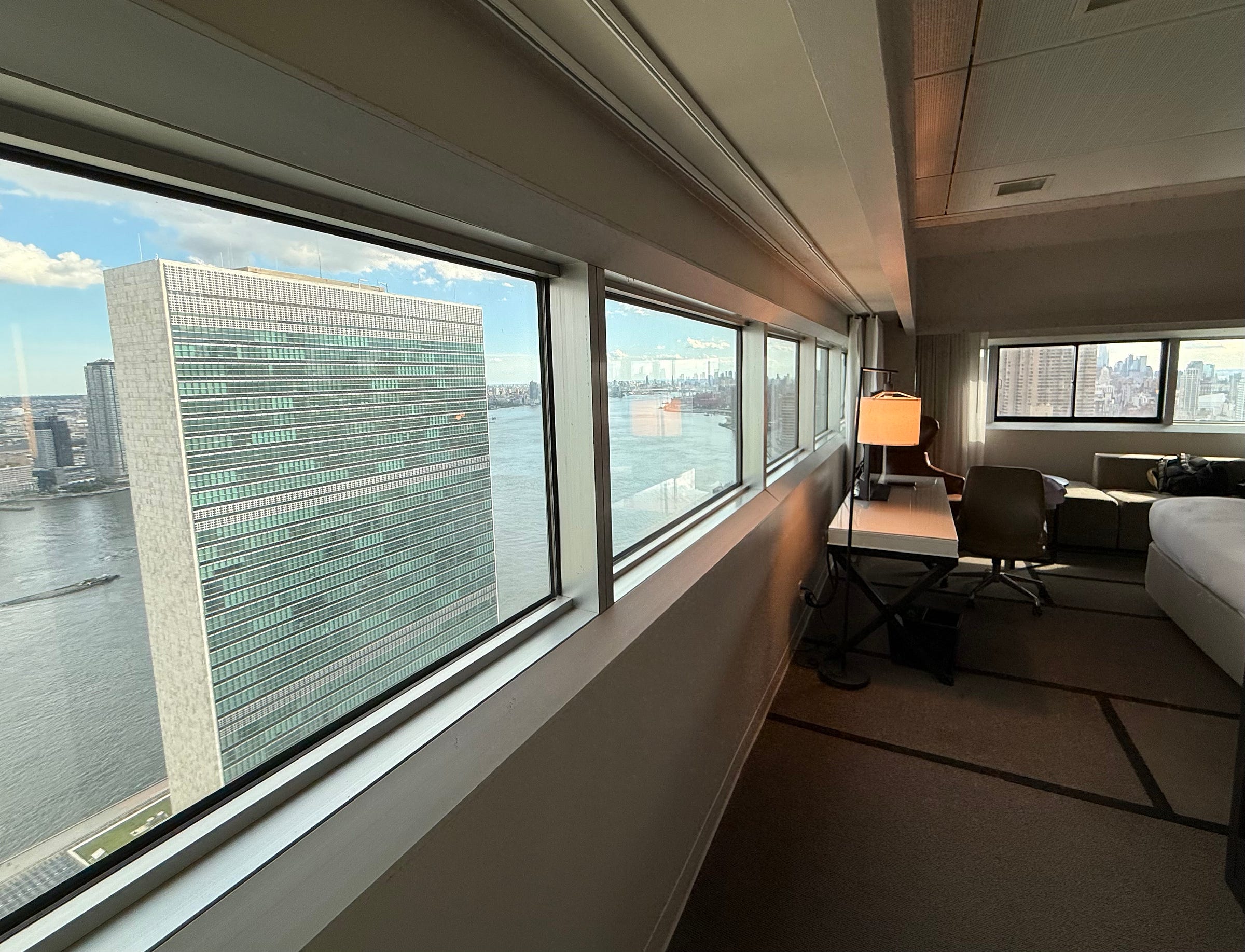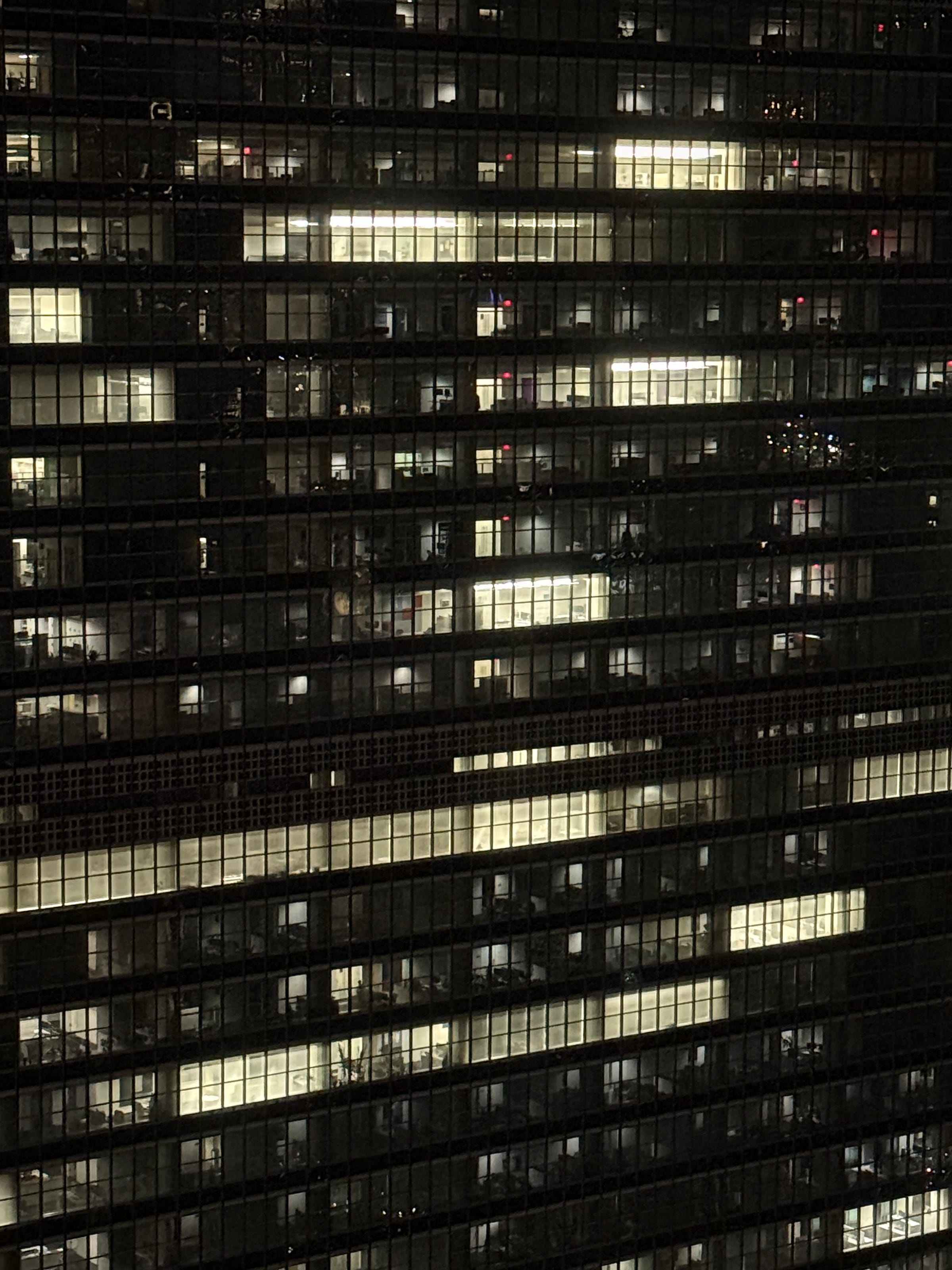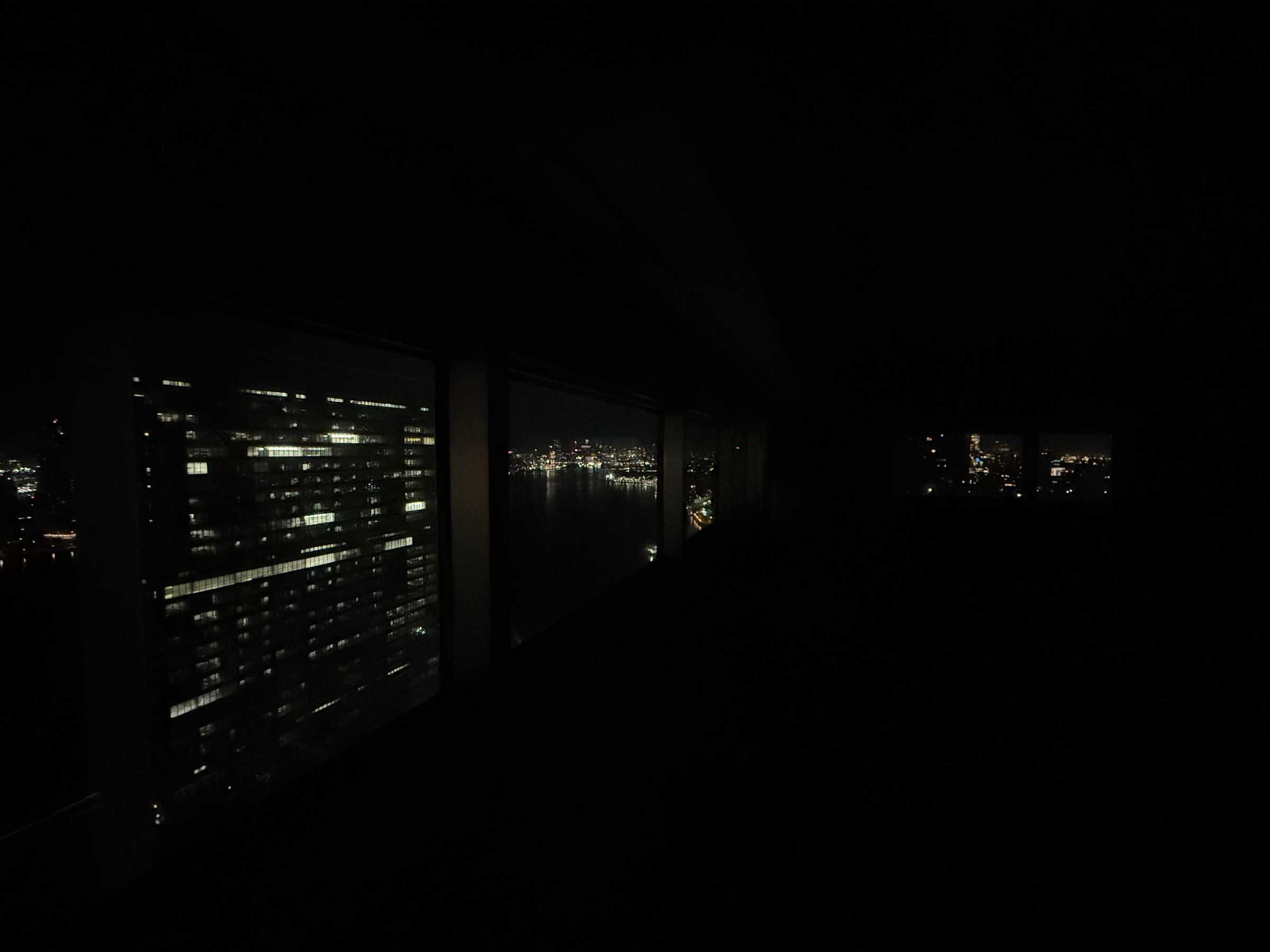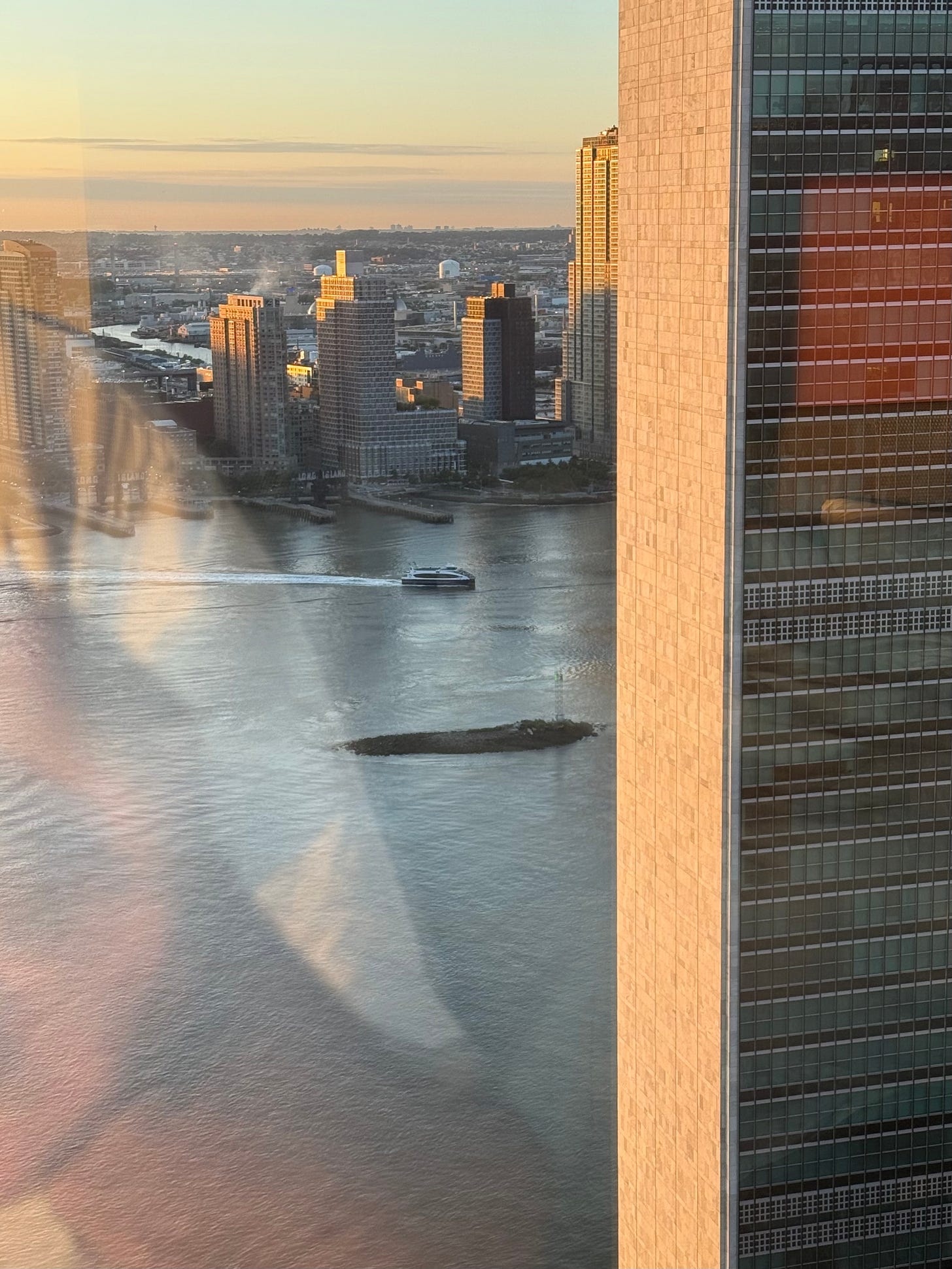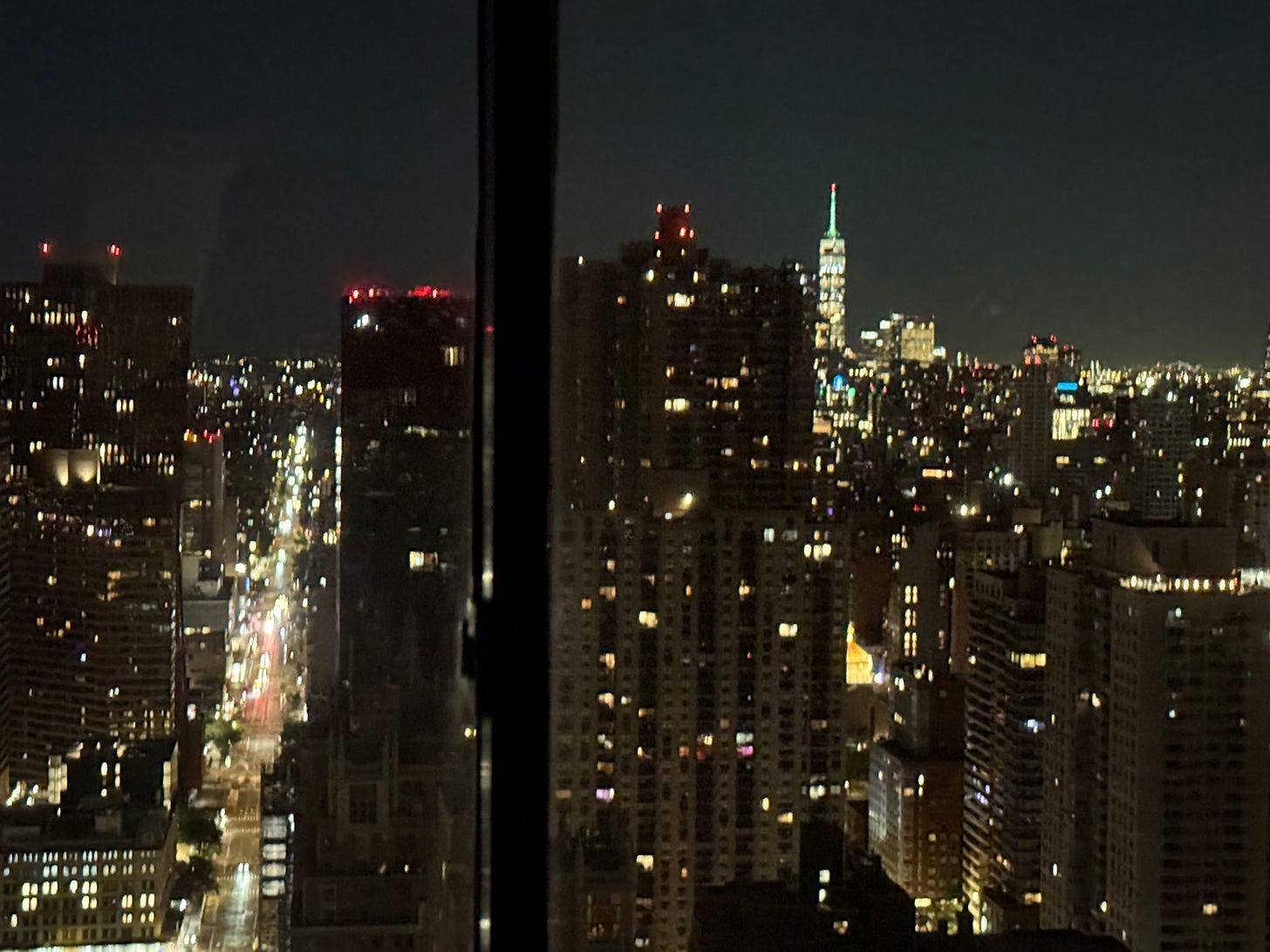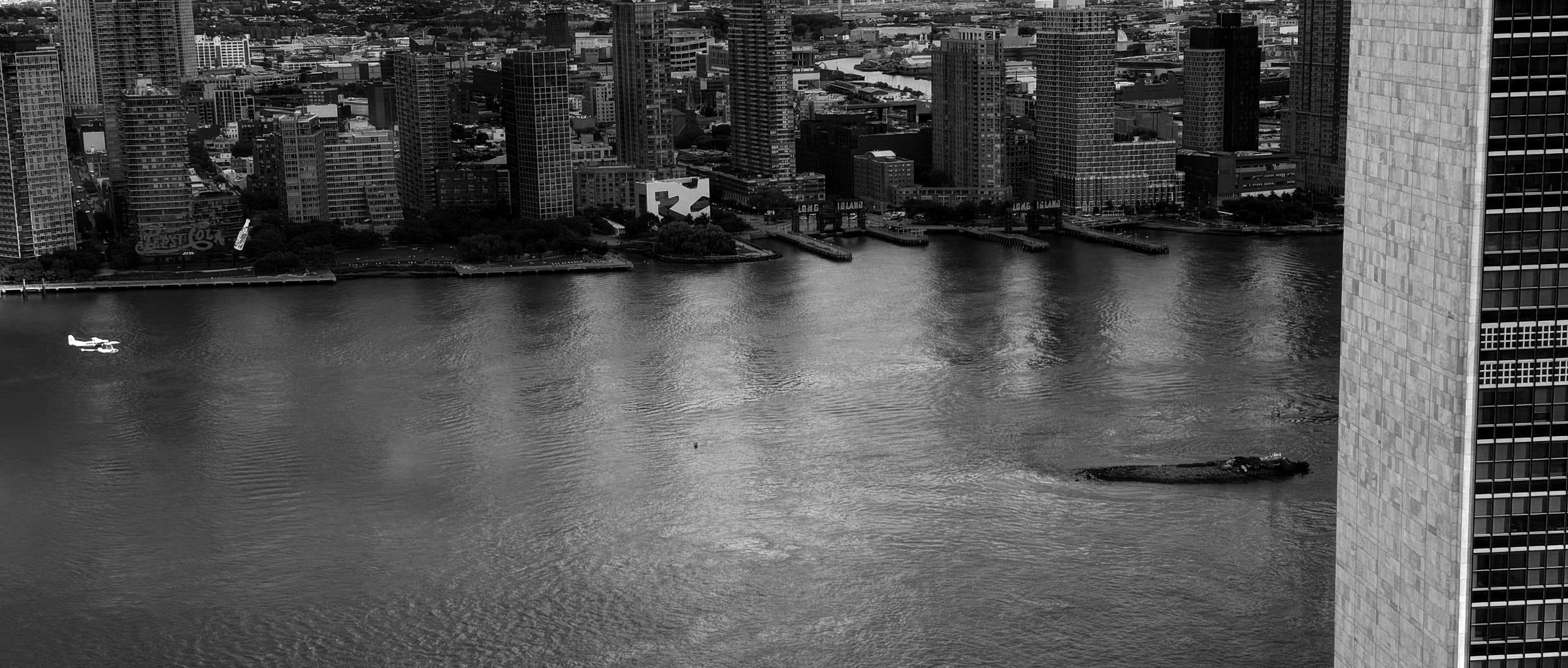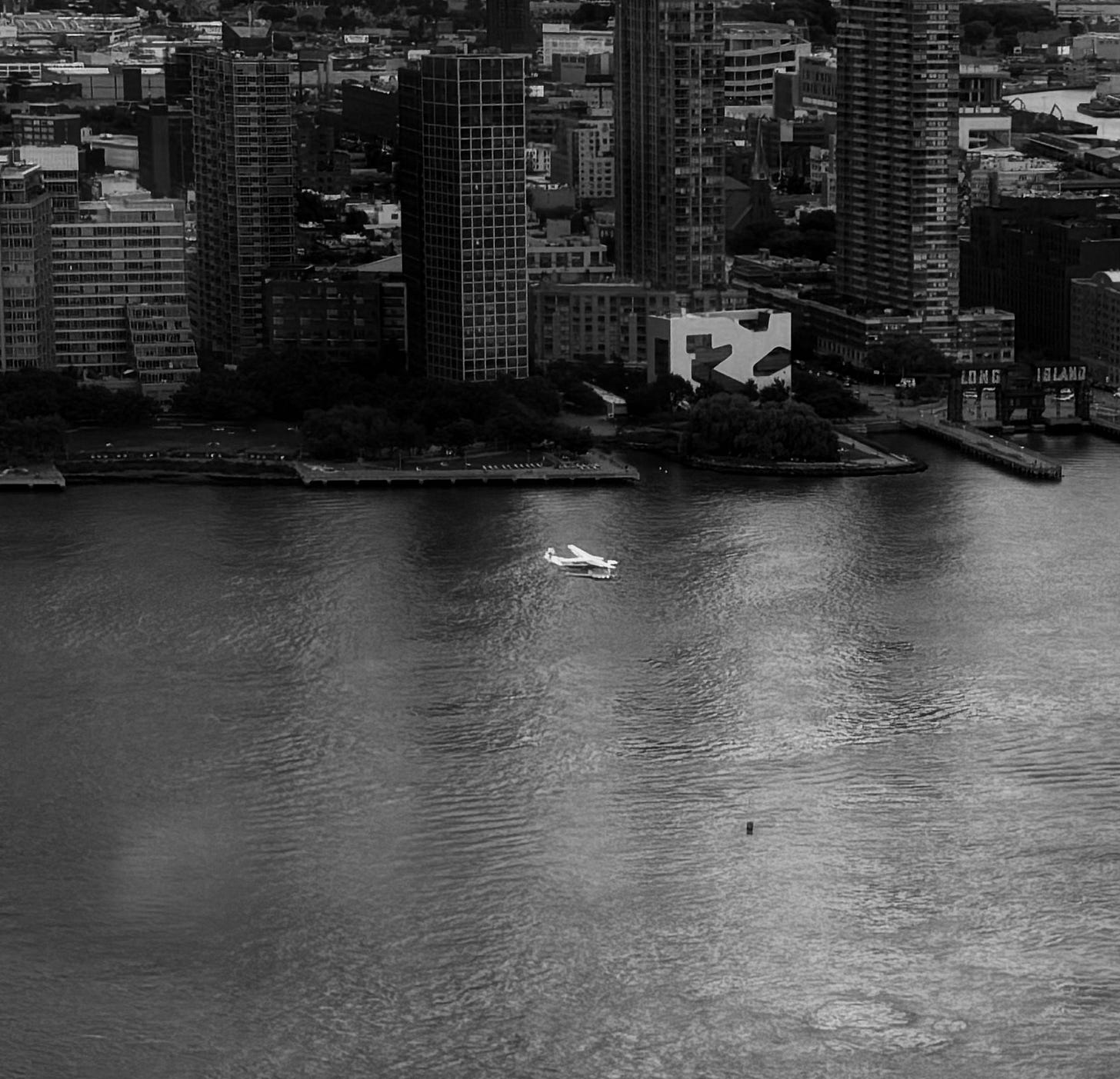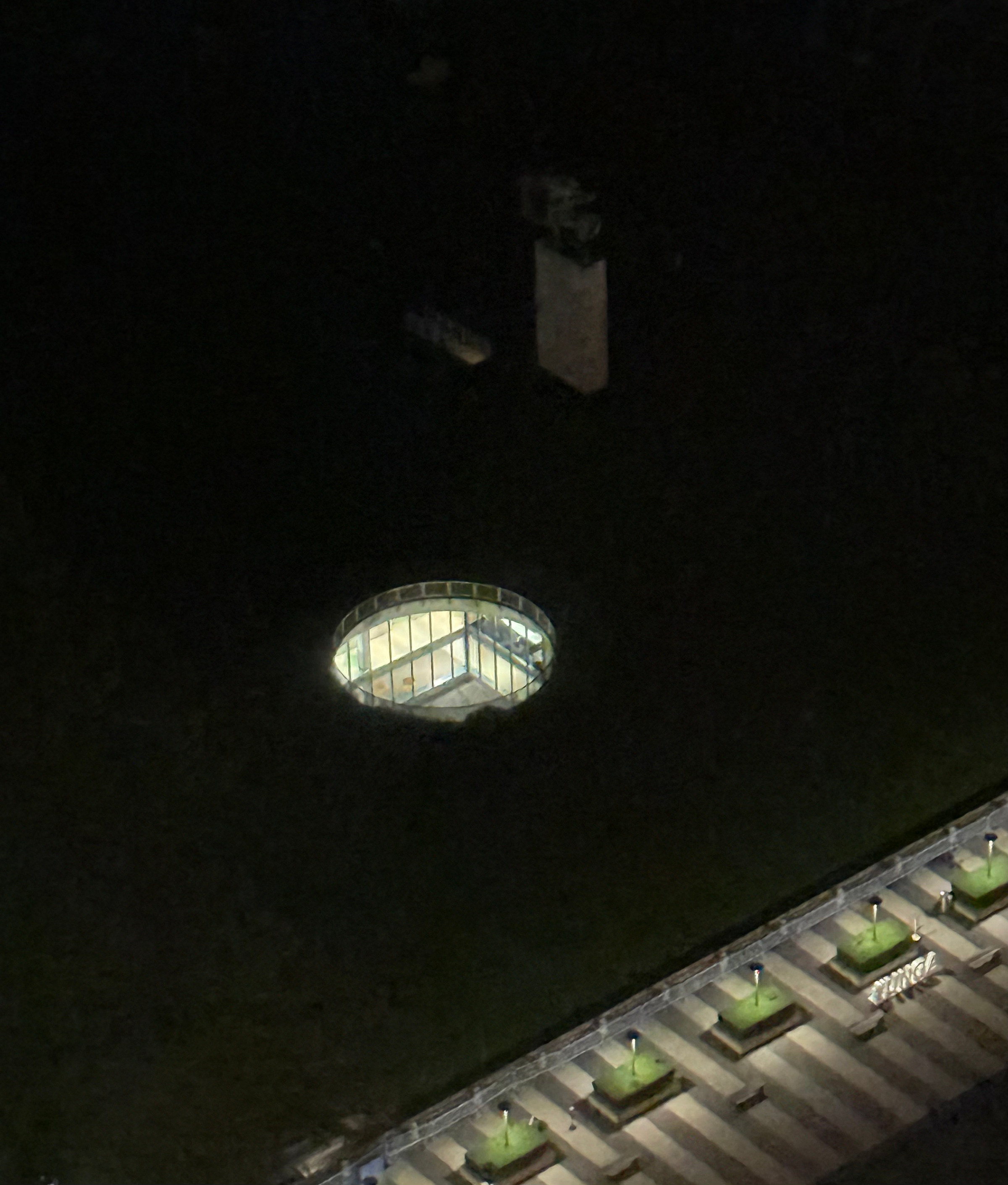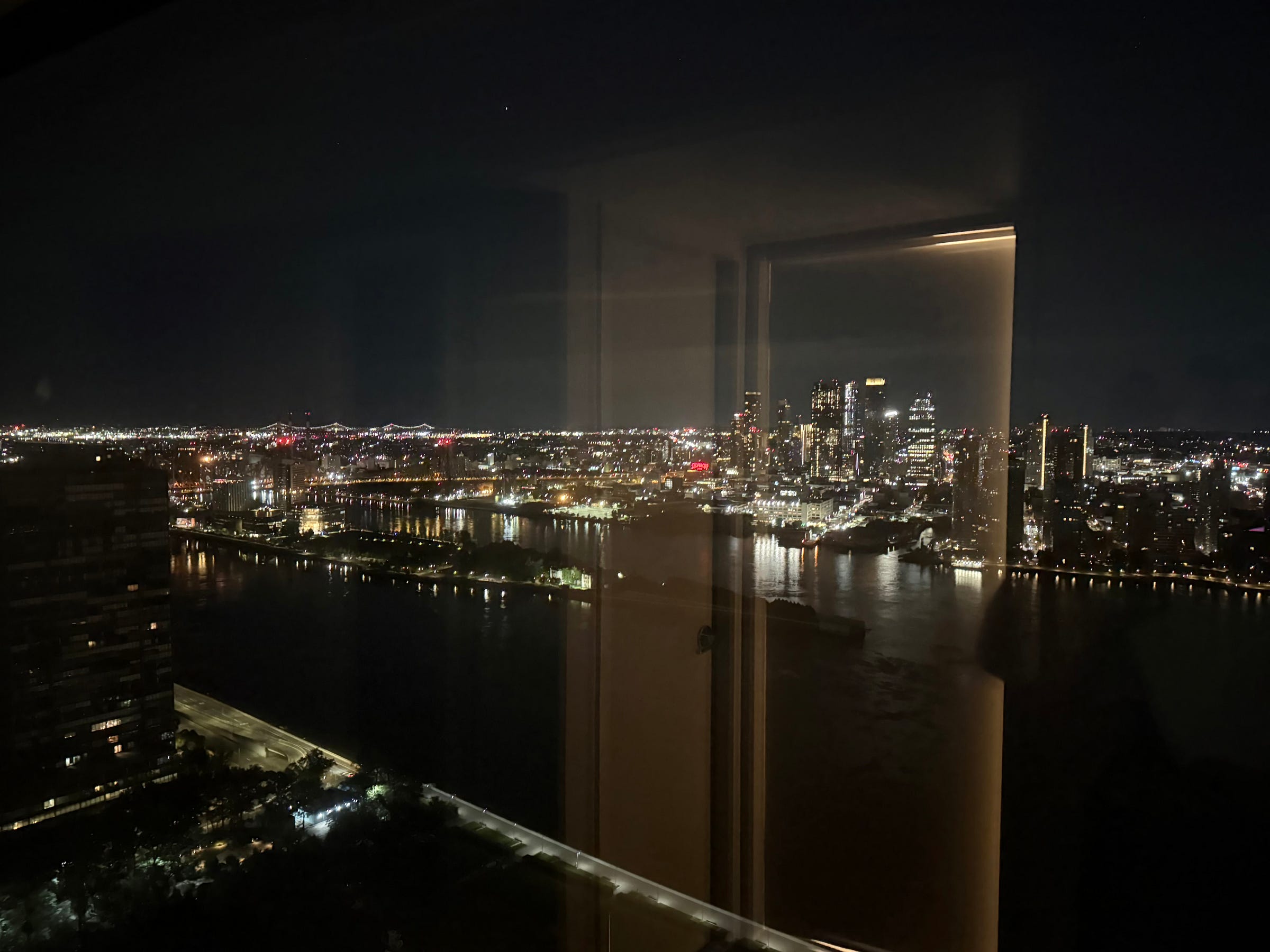East River II
a photo essay
The East River is not a river. Many things are not what they are called, not what they seem to the eye, not even where they seem. What reality are you inhabiting? Erecting? Enforcing?
I do not quite know how I took this image. The water is wrong, the ground is wrong. The image is not true, no guide. Dark obscures, of course, but light deceives, and I was not entirely awake, confused at sunrise. This happens.
When I was young, the United Nations was really something, something grand.
Yet the institution always had its critics. As a newly minted law professor, I was asked about the relevance of the United Nations in today’s (meaning yesterday’s) world, in the heady days after the end of the Cold War. I said of course the world would have had to invent a forum for civil discourse among nations, if we didn’t have such a thing already.
The occasion was a conference given to mark the retirement of Abe Chayes from Harvard Law School. Abe did not want a Festschrift. I was there, among the great and the good, as a student, a baby. Abe was one of my teachers, my sponsor, and the same goes for my wife, and I’d go to the wall for him. More prosaically, I’d accompany him on his quest across Cambridge for a cigar after lunch. Abe was the legal advisor at the State Department in the Kennedy administration (think Cuban Missile Crisis) and, much later, represented Nicaragua at the International Court of Justice (the “World Court”) against the United States. A liberal icon, and a father to many apart from me. And so, at Abe’s not Festschrift conference, I defended multilateralism, public international law, the United Nations, that whole view of modernity, as not only good but in the order of things, at least the order that the United States and its allies had established in the wake of the world wars and by the grace of God. Something like that.
But from this nest, in the era of Trump, Xi, Putin . . . I am not so sure.
In those days, the United States started talking about wars that were legitimate if not legal, and wars that could be presented as legal but were not, and wars that should have been fought but were not, and the opposite too, and fights that we did not consider “war” until we did, and eventually just wars became just, that is merely, wars, or maybe not quite wars. An elaborate seasonal menu of violence emerged.
Get some rest, Pam. You look tired.
In those days, when I was with an NGO created by and for me, I was invited into the women’s bathroom on maybe the 30th floor of that building. For the view. Of the City. Now I’m in a hotel on the other side of the street. Looking in.
The lobby and the restaurant are design landmarks, allegedly “postmodern.” Disco spook is more accurate, all black shiny surfaces and mirrors, disorienting. The restaurant and bar close early. Nobody walks in from the street. Drug dogs, Homeland Security in black SUVs.
On the street outside, facing the river, a small but persistent protest against the Israeli invasion of Gaza drags on, metal banging metal, day after day. The elevator skips most floors. The hallways that are accessible are low-ceilinged, dark, very quiet. The kind of place where the providers of certain services feel comfortable, I gather. Everybody in their own movie, including the President. Who would have thought killers and pimps would be so sensitive to architecture? There’s hope for art yet.
You know all this is out there, even if you only see the tip of the iceberg, the shadow of the livestock truck and all the other forms of violence that you do not want to consider. But how do you think the things you read about happen?
First avenue around midnight. “Freedom Tower” always reminds me why it is there. Freedom indeed. More like the gravitas of violent replacement. “This changes everything,” many people said at the time. Back then, ever the optimist, I resisted, much as I defended the United Nations. Maybe they were more right. Like I said, these are just wars.
To be clear, the Twin Towers were struck by two Boeing 767s, much larger planes, with much more fuel. Still, the mind wanders.
Ideally, militarily, bureaucratically, the communication ought to be clear, clean, and true, to say exactly what needs to be said to get the job done, no more and no less. Targeted precisely, without slippage. Impersonal. But there’s always a reflection, a trace, some shadow of the speaker, the photographer, the maker. Personal.
Get a few more hours while you can. Tomorrow will open soon enough.
— David A. Westbrook
This was a break from my usual format, not just more graphic, but more self contained. I hope you enjoyed it. I have a number of other photo essays here.
DAW Photography. I really enjoy photo essays — I think the authority of the image frees the text to speak more directly, less guardedly, without the naked confrontation that poetry requires and much internet discourse exploits. Be such things as they may, I hope to do more photo essays soon, but spirit willing, body weak or at least over booked, so we shall see.
The audiobook of Maguire & Westbrook, Getting Through Security: Counterterrorism, Bureaucracy, and a Sense of the Modern, is available at WestbrookLongForm. I guess I’m just reworking the same old ideas in another format!
Social Thought From the Ruins: Quixote's Dinner Party is out. Kind words and places to buy are at the link. Remember, the e-book is open access (FREE!) at Routledge.
A fantastic new review just appeared in Unherd: Du Toit on "Social Thought From the Ruins".
More reviews are forthcoming.
Safe travels.
As always, thank you for reading, and special thanks to my paying subscribers.


